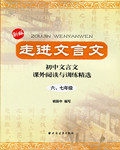题目内容
The Olympic Games are seen as the greatest test of an athlete’s ability and are supposed to celebrate the spirit of fair play. But in fact, sportsmen have been using drugs to cheat their way to victory since the Games first began.
In the early years, athletes ate mushrooms(蘑菇)and plant seeds to improve their performance. Nowadays, this kind of cheating has a name doping(服用兴奋剂).
Just last month, Britain’s top sprinter(赛跑选手) Dwain Chambers and several American athletes tested positive(呈阳性)for the drug THG. Until a coach secretly gave a sample of THG to scientists, no one knew how to test for it.
“We’re like cops(警察)chasing criminals—athletes are always adapting and looking for areas we haven’t investigated,” said Jacquew de Ceaurriz, a French anti-doping expert.
Since the first drugs test was carried out at the 1968 Olympics in Mexico City, many cheats have been caught out. The most famous case in history is that of Canadian sprinter Ben Johnson.
He broke the 100 meters world record in winning gold at the 1988 Seoul(汉城)Olympics. But days later, he tested positive for drug use, lost his gold medal and was banned from the sport. Five years later, he returned to action—only to be found positive again and banned forever.
China has also had problems with drug cheats. At the 1994 Asian Games, 11 Chinese athletes—seven of them swimmers—tested positive for banned drugs. Sports organizations promised that cheating on this scale would not happen again.
Experts are also worried that doping can damage a person’s health. It is believed to increase the risk of liver and kidney(肝肾)diseases, and women may experience reproductive(生育) problems. As long as they can stay ahead of the scientists, it is unlikely the cheats will stop. But experts say there is a limit to what can be achieved and that athletes will not be able to change their bodies using gene(基因)technology.
“For the moment, genetic doping does not exist,” said de Ceaurriz. “Even in 10 or 15 years it will not be done easily—the scientific community(界)will not let it happen.”
( ) 60. Which of the following is not the way that some athletes cheat to their better sports achievements?
A.Eating mushrooms. B Taking drug THG.
C. Taking genetic doping. D. Eating plant seeds.
( ) 61. How many countries are mentioned in the passage in which there were athletes doping?
A. Two. B. Four. C. Sic. D. Eight.
( ) 62. We can infer from the passage that ____.
A.scientists get a lot of information about drugs before the athletes take doping
B.taking doping will never happen again because of the serious test
C.few athletes used drug cheats before the first drugs test was carried out at the 1968 Olympics
D.problems with drug cheats are still serious though they are severely tested
( ) 63. Which statement of the following is true?
A.Many police are sent to chase criminals of taking doping during the Olympic Games.
B.The drug test was carried out until the 1968 Olympics.
C.There is the possibility that women athletes taking doping will give no birth to a child.
D.Ben Johnson was banned from sports forever for being tested positive for drug use at the 1988 Seoul Olympics.
C
B
D
C
【解析】

 字词句篇与同步作文达标系列答案
字词句篇与同步作文达标系列答案 走进文言文系列答案
走进文言文系列答案